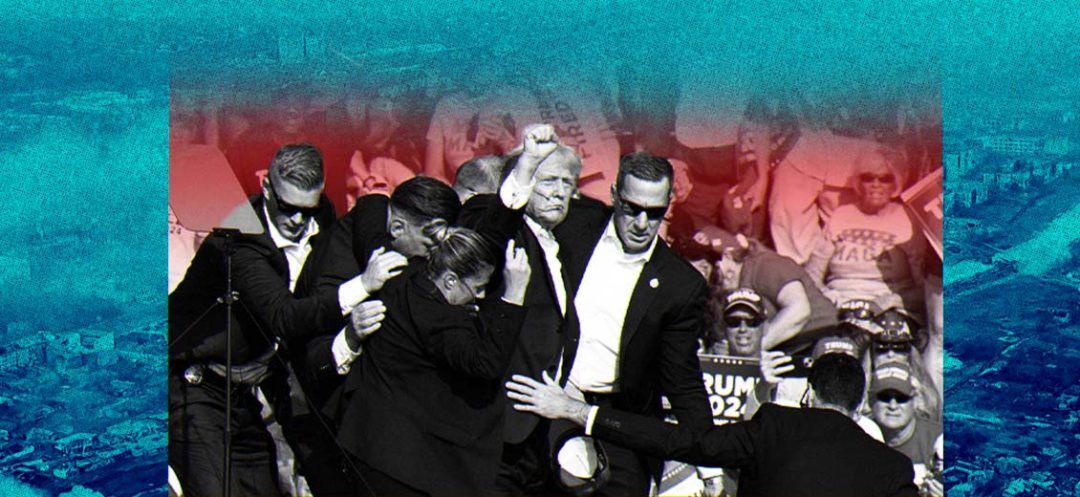- Home
- Middle East
- Editorial – A World Adrift

“The world is (really) going to the dogs.” This brief, laconic reflection, expressed in an online post, is likely to become a common refrain on social networks. It alludes to a series of serious, historically significant events that are unfolding at an alarming pace in a feverish and deadly atmosphere all around the globe.
The assassination attempt on Donald Trump, last Saturday in Pennsylvania, is certainly not the first attack of its kind in the United States. People of a certain age will surely recall the major assassinations and political attacks in modern American history: President John Kennedy, killed in Dallas on November 22, 1963; his brother, Senator Robert Kennedy, assassinated in 1968 during his presidential campaign; also in 1968, Martin Luther King Jr., the father of the civil rights movement for Black Americans (author of the famous “I have a dream”), also killed during a large public rally in Memphis; not to mention the assassination attempt on President Ronald Reagan in 1981.
What sets the Pennsylvania attack apart is that it reflects and stems from an electoral battle unfolding in rather unbecoming, if not surreal, conditions. This battle is characterized by an extremely intense level of verbal violence and rare personal attacks, which often serve as a precursor for deadly physical assaults, as evidenced by the incident on Saturday. The Lebanese have faced similar circumstances several times in recent years...
This excessive verbal violence has also regrettably become a feature of French political life recently, particularly since the announcement of the results of the latest snap legislative elections. The “psychological war” now gripping France, amidst a severe socio-economic and financial crisis and sporadic security disturbances, has directly led to a dangerous escalation and an apparent constitutional impasse (reminiscent of Lebanon) at the executive level. This overall belligerent atmosphere obstructs efforts to find resolution for the crisis, prompting many analysts to consider the once unthinkable scenario in which France risks becoming “ungovernable” in the short term. Some even go so far as to suggest the (ironically fateful) possibility of a “Lebanonization” of the French political landscape!
A world that is undoubtably in trouble, but more importantly, it is a world gone mad, afflicted with rampant irrationality. Just consider the developments of the war in Ukraine, where President Vladimir Putin has resorted to sending successive waves of Russian soldiers (and mercenaries) to assault enemy lines, resulting in hundreds of casualties daily. These soldiers, serving as cannon fodder, are killed by the hundreds daily, with each assault yielding, at best, a few dozen meters of territory. The heavy loss of life in this context is seen merely as collateral damage. President Putin has a troubling history in this regard, having repeatedly crushed uprisings and rebellions threatening his power or expansionist strategy with brutal bombings in recent years.
Closer to home, some populations in the region are enduring an equally brutal and irrational rule – that of the Iranian mullahs. In their quest to assert themselves as key players in the Middle East, they wage proxy wars that extend to the last Palestinian in Gaza, the last Lebanese in South Lebanon, and the last Houthi in Yemen. Here, sacrificing entire populations to advance Tehran's Islamic Revolutionary Guard Corps' hegemonic agenda is cynically dismissed as collateral damage.
This isn’t the first time in history that the world seems adrift, rocked by circles of brutal repressions and futile, deceptive wars. Yet, in today’s global landscape, the most troubling aspect is the spread of “Lebanese-style” political irrationality into Western countries like the United States and France. These nations have long been regarded as bastions of democracy, pluralism, safeguarding public freedoms and human rights.
Read more




Comments